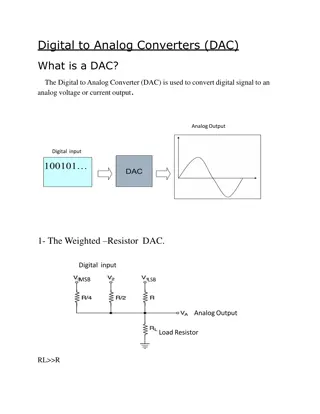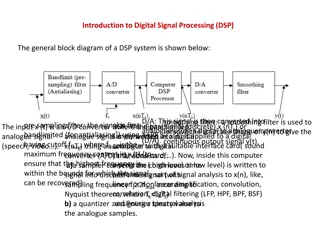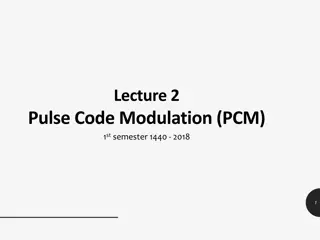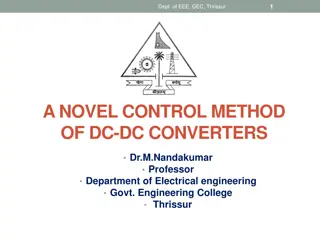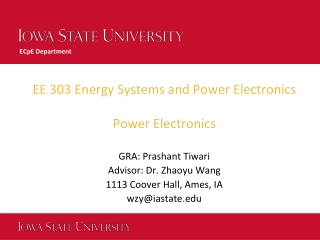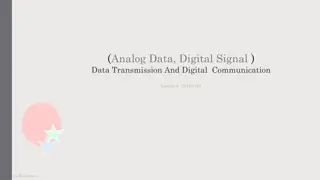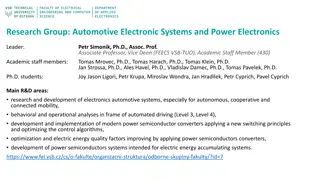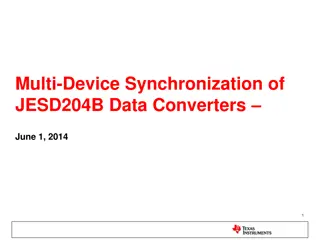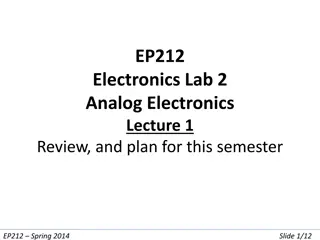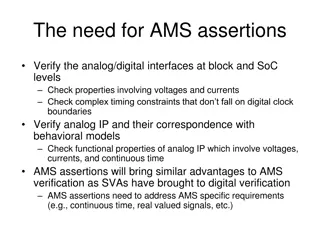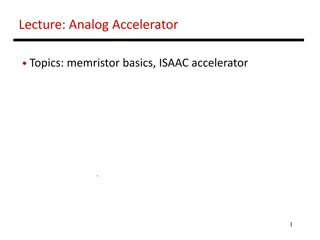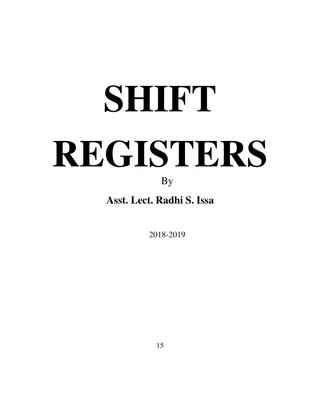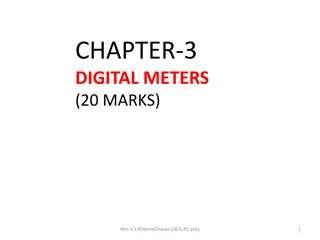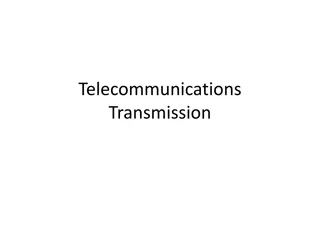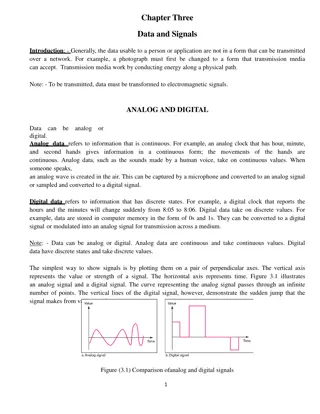Understanding Analog-to-Digital Converters (ADCs) in Electronics
Explore different types of ADCs such as Flash ADC, SAR ADC, and the Comparator in this informative content. Learn about error sources, bubble correction, and binary search techniques used in ADC design. Gain insights into the importance of hysteresis, resolution support, and linearity in ADC functioning.
Download Presentation

Please find below an Image/Link to download the presentation.
The content on the website is provided AS IS for your information and personal use only. It may not be sold, licensed, or shared on other websites without obtaining consent from the author. Download presentation by click this link. If you encounter any issues during the download, it is possible that the publisher has removed the file from their server.
E N D
Presentation Transcript
ADC types Flash ADC SAR ADC
Notations/Interface REF+, REF- AGND, DGND EOC
The Comparator: A 1-Bit ADC INL=DNL=0 http://www.labbookpages.co.uk/electronics/resNetworks/comparator.html Widely used as a building block in many higher resolution ADCs Comparator s resolution needs to be able to support overall high resolution ADC Without hysteresis, a 1-bit ADC is inherently linear, but with hysteresis, it is not Hysteresis size should be less than required resolution Constant offset does not harm linearity by itself, but may cause internal signals to go out of range, thus causing errors 4
Flash ADC Flash ADC N bit string DAC 2N 1 comparators Thermometer to binary encoder Logic latch Clock signal Vref to the DAC Very fast: just one clock cycle 6
1 1 1 1 1 1 1 0 0 1 0 1 0 1 0 Chapter 17 Figure 24
Bubbles 1 1 1 1 1 1 1 0 0 1 1 0 0 1 0 Chapter 17 Figure 24
Bubble/sparckle removal Single bubble correction Chapter 17 Figure 26 J. G. Peterson, A monolithic video A/D converter, IEEE Journal of Solid-State Circuits, vol. 14, pp. 932-937, issue 6, 1979.
Error Sources Comparator offset R-string mismatch Input capacitance Feedthrough of input signal to reference ladder
SAR ADC Chapter 17 Figure 05



